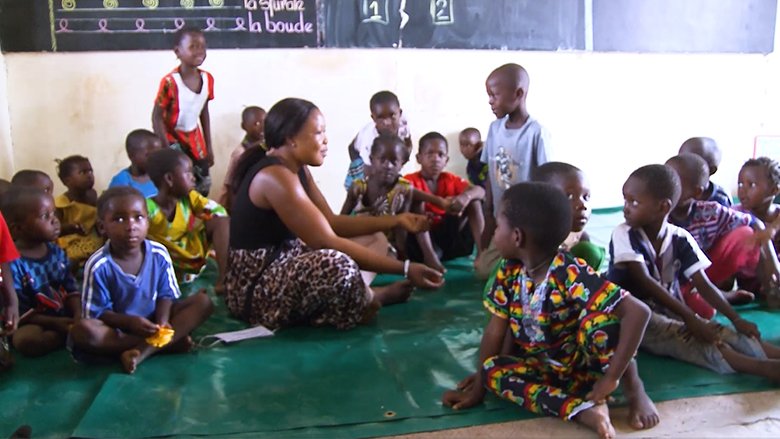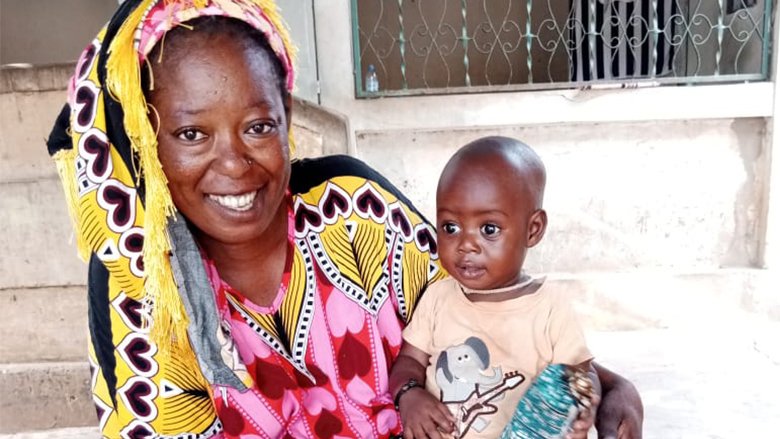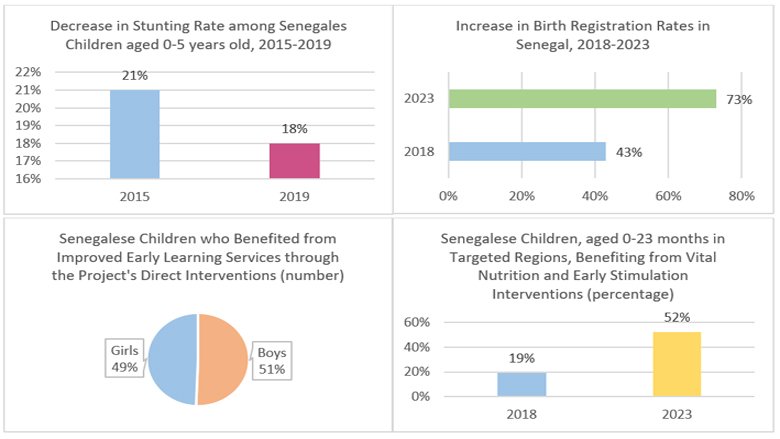Challenge
Addressing the multifaceted issues of poverty and inequality in Senegal, as in West Africa as a whole, represents a critical development challenge. Senegal currently ranks in the lowest quintile of the Human Development Index (HDI), ranked 170 of the 190 countries surveyed1, with 9.2 percent of the population living on less than $2.15 a day. While poverty figures are lower than some neighboring countries, such as Mali (15 percent), Guinea (14 percent), and Guinea Bissau (22 percent), they underscore the substantial hurdles facing the region. Rural areas in Senegal bear a disproportionate burden: they contain just over more than half the population (53 percent) but are home to 80 percent of chronically poor and vulnerable households. The impact is particularly severe on young children, as 85 percent of the poorest households have children under the age of five, and poverty adversely affects their nutrition, health, and education2.
Regarding nutrition, a significant proportion of infants, 64 percent, are not exclusively breastfed, and 93 percent of young children do not receive a minimum acceptable diet, thus hampering their growth and educational prospects. The gravity of the situation poses a threat to Senegal's achievement of key Sustainable Development Goals (SDGs).
In the education sector, despite a significant increase of over ten percentage points between 2000 and 2020, the proportion of children attending pre-school is still low compared to the regional average, with a rate of 18 percent for girls and 16 percent for boys in Senegal. This compares to an average of 24 percent for both sexes in the West and Central Africa region3. Thus, pre-school education reaches a small proportion of the country's school-age population; it is primarily a concern of the middle- and upper-income classes, who live in cities and see the benefits of pre-schooling for their children's success. Additionally, in both rural and urban areas, many parents prefer to give their children a religious education from an early age.
Despite Senegal's robust economic growth—consistently surpassing 6 percent annually from 2014 to 2020—inclusive development remains a challenge. Although government spending on social sectors averages 30 percent, there is a discernible gap in translating economic growth into widespread prosperity. The presence of a fragmented institutional framework and the lack of strong leadership compounds the complexities faced in achieving sustainable and inclusive development in Senegal. Difficulties in making progress spurred engagement with multiple actors and cross-sectoral coordination to tackle underlying challenges.
Approach
Aligned with the government’s Plan Senegal Emergent, and its Second Priority Action Plan (2019-2023), the World Bank's strategic focus emphasizes early childhood interventions, expanding access to services in marginalized rural and peri-urban areas, and enhancing the efficiency and transparency of governance institutions and social protection systems. The Investing in Early Years for Human Development Project support to this plan is twofold, involving support to both the education and nutrition sectors.
The Investing in Early Years for Human Development Project builds on the Investing in Maternal, Child, and Adolescent Health (ISMEA) Project, a World Bank initiative supporting maternal and child health services. Both projects have divided geographic regions during the same time period to ensure widespread coverage, implementing consistent early nutrition and stimulation activities nationwide. This collaborative approach aims to enhance the impact and reach of crucial initiatives to support early childhood development.
The World Bank's support for Senegal’s National Nutrition Enhancement Program (CNDN) is a pivotal initiative in the battle against poverty and malnutrition. As such, the Investing in Early Years for Human Development Project incorporates support for the CNDN, which is designed to dismantle the numerous barriers that families, especially women, encounter in accessing quality nutrition and resources for their households. The CNDN works with local communities and religious leaders to provide a stronger foundation for Senegalese children. Notably, the engagement of over 900 religious leaders plays a crucial role in advocating for increased investments and parental involvement in early childhood development.
The CNDN has embraced a multifaceted approach over the years, implementing cross-sectoral and innovative practices to empower women in rural and semi-urban areas grappling with high rates of food insecurity and acute malnutrition in infants. These practices encompass child nutrition and early stimulation in the crucial first 1,000 days by leveraging new technologies to strengthen existing systems, as well as promoting essential family health and nutrition practices. The success of this novel approach hinges on the empowerment of women and the prioritization of community assets.
The Investing in Early Years for Human Development Project also aims to support quality education. Thus, it undertakes innovative partnerships with Koranic schools, known as Daaras in Senegal, an approach that has proven to be highly effective. Performance-based contracts with Daaras ensure the integration of at least 10 hours per week of quality, play-based early learning, thereby fostering cognitive and social development, as well as early literacy and math skills that can further advance children’s educational development. The project also supports the creation of community pre-school classes (CPCs) and the launching of the Read@Home initiative. By distributing story books in Arabic, French, and seven Senegalese languages, the Read@Home initiative aims to reach 50 percent of all children under the age of six in seven regions, particularly those with the lowest early childhood development outcomes.
Results
Despite daunting challenges posed by the COVID-19 pandemic and government restructuring, since 2018 the Project has displayed remarkable progress and tangible achievements.
A standout accomplishment is the transformative impact for over 10 million children, 52 percent of those aged 0-23 months in targeted regions, who benefited from vital nutrition and early stimulation interventions. This represents a remarkable surge from a mere 19 percent in 2018, underscoring the Investing in Early Years for Human Development Project’s prowess in reaching and positively impacting a significant segment of the intended demographic.
Beyond education, the initiative has made substantial strides in improving birth registration rates for children aged 0-5 years, surging from 43 percent to a 73 percent. This achievement is of particular importance because birth registration is a prerequisite to enrollment in schools at an appropriate age and grade level, as well as to better targeted nutritional support.
The Investing in Early Years for Human Development Project’s focus on gender inclusivity is evident, particularly its emphasis on girls' access to quality early learning services. Direct interventions have resulted in over 92,000 girls and over 94,000 boys benefiting from improved early learning services.
Beneficiary Quote



